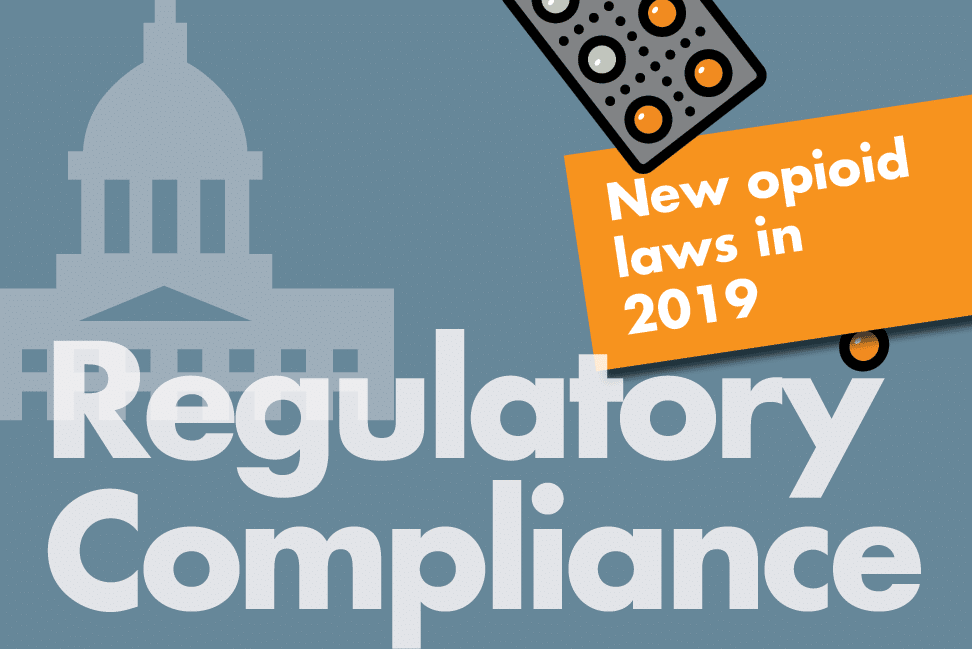Many bills were introduced over the past year to combat the opioid epidemic in California, as CDA previously reported. Here is an overview of the CDA-supported legislation signed into law by Gov. Jerry Brown in September and how these bills will affect the practice of dentistry.
AB 2789(Wood-Healdsburg) E-prescribing
Beginning Jan. 1, 2022, health care practitioners authorized to issue all controlled and noncontrolled prescriptions are mandated by this law to have the capability to transmit prescriptions electronically. Pharmacies are required by this law to have the ability to receive these electronic transmissions.
Specified exemptions to this law include temporary technological or electrical failure or when the practitioner reasonably determined that it would be impractical for the patient to obtain the substances prescribed by an e-prescription in a timely manner when the delay would impact the patient’s medical condition. In the case that an electronic transmission to a pharmacy cannot be completed, the prescription must be electronically issued directly to the patient.
This new law will help reduce prescription fraud, including the abuse of opioids, and adverse events caused by handwriting errors. The nearly three-year implementation time frame gives dentists and other health care practitioners ample time to obtain adequate e-prescribing systems, to train staff and to update office workflow protocols.
SB 1109(Bates-Laguna Niguel) Informed Consent for Minors
The Dental Board of California is allowed by this law to include the risks of addiction associated with the use of Schedule II drugs in mandatory continuing education requirements. The dental board has already begun discussions about what these continuing education requirements might look like. CDA has been and will continue to be engaged in this stakeholder process.
Additionally, beginning Jan. 1, 2019, this bill requires a prescriber to discuss the following with a minor or the minor’s parent or guardian before issuing the first opioid prescription in a single course of treatment:
- The risks of addiction and overdose associated with the use of opioids.
- The increased risk of addiction to an opioid to an individual suffering from both mental and substance-abuse disorders.
- The danger of taking an opioid with benzodiazepine, alcohol or another central nervous system depressant.
CDA Practice Support and The Dentists Insurance Company are developing for members a resource that consists of a sample discussion script. CDA will publish more details about the script when it becomes available in November.
AB 2086(Gallagher-Yuba City) CURES Prescriber Report
This law allows a prescriber to access the CURES database and generate a report that lists patients for whom he or she is listed as a prescriber in the CURES database. Once the system upgrades allow reports to be generated, prescribers will be able to more easily review their prescribing history and to detect potential red flags or prescriptions for which they have been falsely named the prescriber. While no official timeline has been set, CDA will keep members updated as to when the CURES database functionality is updated to reflect this new feature.
AB 1751(Low-Campbell) Interstate CURES Access Agreement
This law authorizes the Department of Justice to put in place regulations by July 1, 2020, for the purpose of entering into agreements with other states to share prescription drug monitoring program information in compliance with California laws relating to patient privacy and data security standards.
Once implemented, the new law will help provide prescribers with a more complete prescription history if patients receive prescriptions in multiple states and will help curb “doctor shopping” in communities near California’s borders.
AB 1753(Low-Campbell) Controlled-Substance Prescription Pad Requirements
This law requires controlled-substance prescription-pad manufacturers approved by the Department of Justice to have uniquely serialized numbers in a manner prescribed by the department. This new law will help curb controlled-substance prescription fraud. CDA will keep members updated on changes to the approved controlled-substance prescription-pad vendor list.

